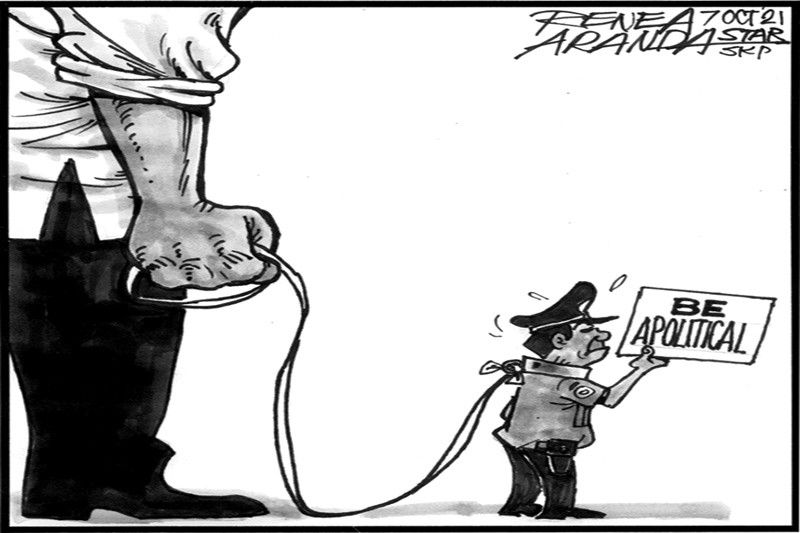EDITORIAL - Politics and the PNP

With even the disaster emergency alert network being hijacked by a candidate, Philippine National Police chief Guillermo Eleazar has been issuing directives reminding PNP personnel that they must not allow themselves to be used for partisan purposes in the upcoming general elections.
Eleazar says PNP personnel with relatives seeking elective posts in the police officers’ places of assignment will be transferred. Campaign materials cannot be displayed in PNP offices, vehicles or equipment such as helmets.
A bigger challenge for Eleazar’s objective of keeping the PNP apolitical, however, are politicians themselves, especially incumbent officials. It is not uncommon for elective officials to think their police escorts, who are on the taxpayers’ payroll, are their private bodyguards.
The 2009 massacre in Maguindanao was just the worst example of police and paramilitary forces being used as the private army of a clan in power – in this case the Ampatuans – and carrying out an unspeakable atrocity against the camp of a political rival.
Eleazar will retire next month. But his successor should pursue his objective of keeping the PNP apolitical especially when the official campaign period starts. A general reassignment must be implemented in the PNP, with local government executives and other politicians not allowed to intervene for any police official.
Even if he is just weeks away from retirement, Eleazar can still send a strong message by penalizing any PNP member found engaging in partisanship as politicians begin filing their candidacies.
PNP members, especially younger personnel and new recruits, may need to be reminded about which acts or omissions constitute partisanship during election season. Those assigned as part of the security teams of incumbent elective officials should also be informed about how they can respond when instructed by the officials to engage in partisan activities.
Like all citizens, cops have the right to choose their candidates and exercise their right to vote. But they cannot use state power to impose their choices on the citizenry. They must get a clear message that their principal role in elections is to ensure that the vote will be peaceful and orderly.
- Latest
- Trending





























